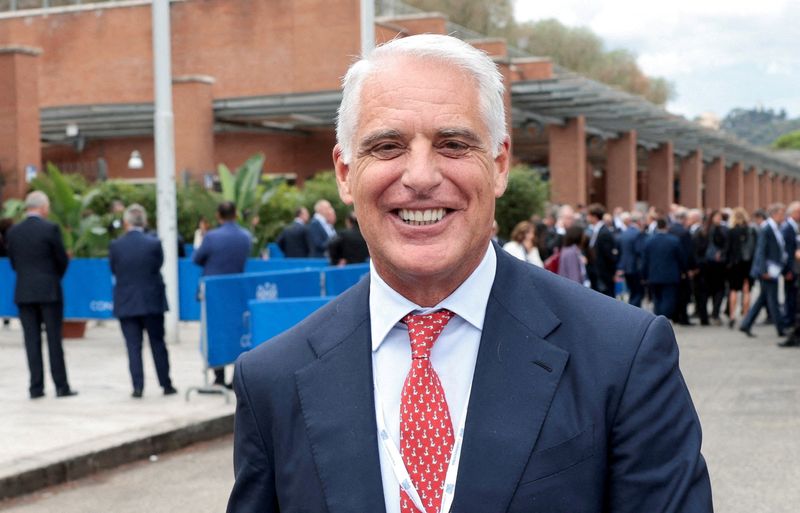MILAN (Reuters) – Cost cuts at Commerzbank (ETR:) if UniCredit were to buy its German rival would mostly affect its head office not its branch network, UniCredit CEO Andrea Orcel was quoted as saying on Friday.
UniCredit has built a near 21% stake in Commerzbank, subject to supervisory approval, and said it sees a merger as the best outcome.
It has also flagged the possibility of selling the stake at a profit, after it used derivatives to set a floor for any losses. Such a move would push Commerzbank shares sharply lower.
In comments dated Oct. 3 published in The Economist, Orcel said he rejected the idea of moving UniCredit’s headquarters to Germany, where the majority of the assets would be, were he able to seal a merger.
UniCredit had already said there was no reason to move its head offices outside of Italy after Italian Deputy Prime Minister Matteo Salvini said the bank should keep its legal base in Italy – a sensitive issue in Italy after some top companies moved their legal domicile abroad.
Orcel’s predecessor Jean Pierre Mustier, who had also worked on a Commerzbank takeover, had initially studied creating a Germany-listed sub-holding company to house UniCredit’s foreign operations.
German banks benefit from lower funding costs than Italian lenders thanks to Germany’s much stronger credit standing compared to Italy’s.
UniCredit controls German lender HVB, where costs at the end of June accounted for 39% of income, against 59% at Commerzbank.
“Orcel says management staff at the corporate centre would bear the brunt of the cuts, implying few branch closures,” The Economist wrote.
UniCredit is working to slim down its head office operations in Italy, Reuters reported. Head office staff taking early retirement will be replaced by new staff in branches, and 600 headquarters staff are being retrained to be mostly shifted to the branch network.

In the event of a merger, downsized corporate centres in both Italy and Germany could help UniCredit address the need to keep its group headquarters in Italy to avoid irking the government, while also having a solid presence in terms of core functions in Germany, which would become its biggest market.
UniCredit is “very, very proud” of its Italian roots and moving north would be yielding to (German) political pressure, the Economist cited Orcel as saying.


